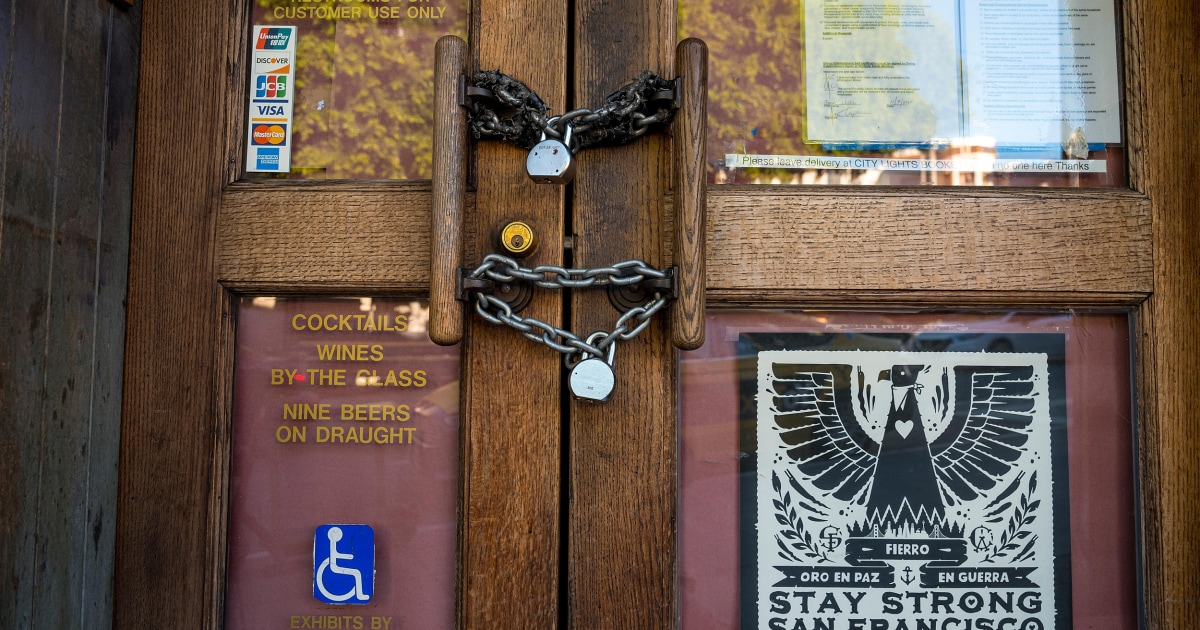
Initial weekly jobless claims rose to 885,000 reflecting the escalating economic toll of cities and states struggling to contain surging Covid-19 numbers — and prompting starkly worded calls for Congress to pass another round of fiscal stimulus to help keep millions of Americans financially solvent.
The latest number, an increase of 23,000 from the previous week's revised levels, does little to allay economists’ concerns about the combination of renewed business closures and lockdowns, weakening retail spending and the looming cutoff of federal financial support programs for borrowers and unemployed workers.
It was also higher than expected. The average estimate of economists polled by FactSet had anticipated initial claims falling to 790,000 and seeing 5.7 million continuing claims. November’s monthly employment report, released in early December, showed that employers added just 245,000 jobs last month — a sharp slowdown that also took economists by surprise.
Daniel Zhao, senior economist at Glassdoor, said the current trajectory is clear — and alarming. "The recovery is weakening as we head into a rough winter. As the pandemic surges, employers are again furloughing or laying off workers as states impose new restrictions and consumer demand dries up,” he said.
As has been the case for the past several weeks, economists said the weekly jobless figures don’t reflect the full scope of the labor market’s troubles, since many workers have exhausted their state unemployment benefits and have cycled into expanded federal unemployment aid, assistance that expires at the end of the year. Economists also warn that a pullback in spending is all but inevitable as forbearance from debt and eviction moratoriums also end in a few weeks. One recent survey found that more than four in 10 people who lost income because of Covid-19 have not recovered their previous earning power.
“The economy requires forward momentum to stay healthy, and letting it roll to a stop hurts everyone,” said Josh Wright, founder and chief economist at economics consulting firm Wrightside Advisors.
This contraction in consumer activity appears to be already taking place. Retail sales data released Wednesday revealed a pullback in people’s willingness to spend, with Commerce Department data showing a 1.1 percent decline in November.
“Nervous Americans are also becoming more cautious in their travel and spending, fearful of getting sick,” said Mark Zandi, chief economist at Moody’s Analytics.
Zandi said this was the most recent signal to lawmakers that delaying further fiscal aid would have systemic economic consequences. “Without additional fiscal relief from lawmakers, it is likely employment will decline and unemployment will increase in the next few months,” he predicted.
Although the stock market has been buoyed by positive vaccine news, the reality on the ground is much grimmer for workers and small businesses, said Andrew Stettner, senior fellow at The Century Foundation.
“The pain will be lasting if Congress does not re-up the value of unemployment aid, both for families and the economy that will suffer from a decline in consumer spending,” he warned.
In addition to the legislative gridlock that has kept the promise of additional support for laid-off Americans and struggling small businesses, Wright also placed some of the blame on Wall Street’s sanguine response to the mounting economic catastrophe on Main Street.
“Politics plays a role, of course, but so does markets' willingness to look past the short-term turbulence,” he said. "Without market turmoil or downturns, it's harder for policymakers to justify bold action."
"claim" - Google News
December 17, 2020 at 08:35PM
https://ift.tt/2LCxFRO
Weekly initial jobless claims rose to 885,000 last week - NBC News
"claim" - Google News
https://ift.tt/2FrzzOU
https://ift.tt/2VZxqTS
Bagikan Berita Ini















0 Response to "Weekly initial jobless claims rose to 885,000 last week - NBC News"
Post a Comment